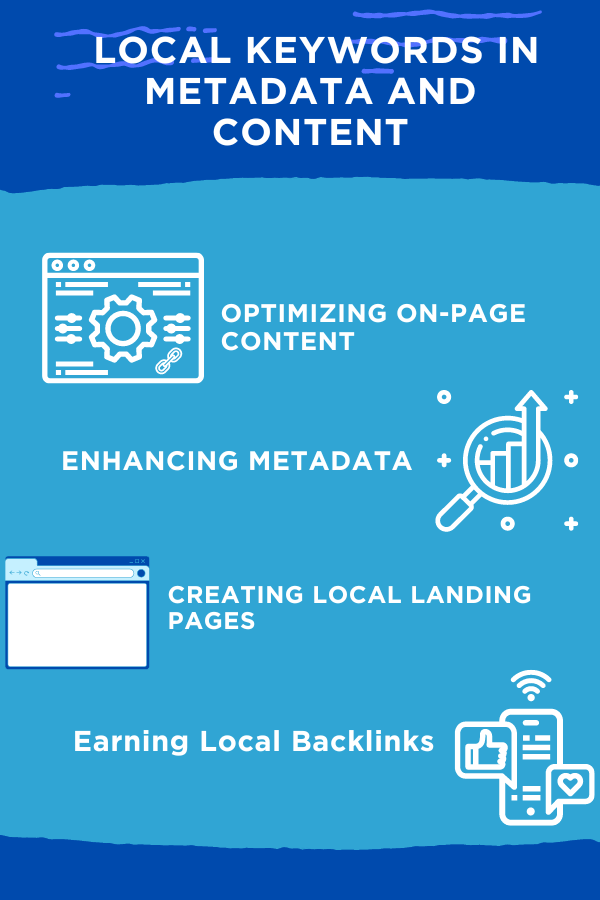Local businesses are realizing more and more in the digital era how important it is to make the most of their online presence in order to draw in local customers. The use of Google Keyword Planner, Keyword Planner, and Google Ads Keyword Planner, among other tools, makes local keyword research an effective strategy for accomplishing this goal. Businesses may improve their online content to show up more prominently in relevant search results by knowing the terms and phrases that local users use to locate goods and services. In this comprehensive guide, we’ll cover how to do effective local keyword research and how to seamlessly incorporate these keywords into content and metadata for maximum impact.
Understanding Local Keyword Research
It’s critical to comprehend the distinct characteristics of local search before delving into keyword research. Location-specific phrases like city names, neighborhoods, landmarks, or even colloquial names for places are examples of local keywords. Examples of keywords that a neighborhood bakery in New York City might use are “best bakery in NYC” and “artisanal bread Upper East Side.”
Finding Useful Local Keywords :
Start by generating terms that are associated with your business and its location in order to find appropriate local keywords in local keyword research. Find popular search phrases and assess their search volume and level of competition by using tools for researching keywords, such as Ahrefs, SEMrush, and Google Keyword Planner. These resources offer insightful information about regional search patterns, enabling you to properly customize your keyword approach for the region and target market.
Analyzing Competitor Keywords
Look at the keywords that your competitors are utilizing in their advertisements and content. By focusing on similar but less competitive keywords, you might find areas where your company can stand out from the competition.
Using the Insights from Google My Business
Use information from your Google My Business (GMB) dashboard to learn more about how customers are finding your company online. Consider the search terms that customers are using to locate your company, and include pertinent terms in your keyword strategy.
Keyword Research types
Broad Keyword Research:
Long-Tail Keyword Research:
Competitor Analysis:
Local Keyword Research :
Google Keyword Planner:
Search volume estimation and keyword research are made easier using Google Ads’ free tool, Google Keyword Planner. Ideal for local keyword research, it provides insights into local search trends and lets users filter term data by area.
SEO:
Keyword research is one of the many functions available in SEMrush, an all-inclusive SEO tool. Users can track keyword ranks, examine competitors’ keyword strategies, and choose pertinent terms for local search with SEMrush. Its local SEO toolset helps firms optimize their online presence for particular geographic locations and offers insights into local keyword trends.
Moz Local Keyword Explorer:
Dedicated to local keyword research, Moz Local Keyword Explorer is a component of Moz’s SEO toolkit. Businesses can use this information to discover high-value keywords that local SEO efforts should focus on by using data on local search volume, keyword difficulty, and SERP attributes for certain locales. Furthermore, Moz’s exclusive Keyword Difficulty score assists consumers in determining how competitive a certain keyword is in their intended market.
Integrating Local Keywords into Content and Metadata:
After you’ve created a list of pertinent local keywords, it’s necessary to carefully use them in the metadata and content of your website to increase its exposure in local search results.

Optimizing On-Page Content:
When it comes to local SEO on-page content optimization, strategically placing local keywords is crucial. Incorporating the main local keyword into the headline, meta title, and meta description of your site not only communicates to search engines that your business is relevant, but it also lets visitors know right away that it is locally focused. Similar to this, creating content specifically for service pages that targets local keywords related to your offerings will help your website score highly for relevant searches. Utilizing these terms in the headers, page titles, and body text, you not only increase your exposure but also give prospective buyers useful information, making for a seamless and joyful surfing experience.
Enhancing Metadata :
Improving metadata is essential to search engines optimize a website and increase its exposure in search results. Title tags, meta descriptions, and alt attributes are examples of metadata that gives search engine crawlers useful information about the relevancy and content of individual web pages. Businesses may boost the possibility that their sites be well-positioned on search engine results pages (SERPs) additionally garner more user clicks by creating captivating and keyword-rich metadata. Additionally, businesses can effectively target specific geographic locations and acquire local search traffic by enhancing metadata with local keywords.
Creating Local Landing Pages :
Businesses trying to have a strong online presence in particular regions must create local landing pages. Addresses, phone numbers, business hours, and pertinent keywords are just a few of the location-specific details that make these pages specifically targeted to local audiences. Businesses may enhance their presence in local search results and draw in local clients by enhancing content and metadata with local keywords.
Earning Local Backlinks :
Obtaining local backlinks is an essential tactic for raising the internet exposure of your company in your neighborhood. Links on other websites that go back to yours within your geographic area are known as local backlinks. These links build authority and reputation in your local market while also informing search engines that your company is relevant to local search queries. Building connections with nearby companies, associations, and influencers as well as providing helpful material or resources will help you draw in local backlinks that will raise your website’s search engine results and provide relevant traffic to it.
Conclusion:
To increase their online presence and draw in local clients, local firms must become experts at local keyword research and implementation. Businesses may raise their rankings in local search results and increase targeted traffic to their websites by comprehending the subtleties of local search behavior and effectively inserting local keywords into website content and metadata. To stay competitive in the local market, keep an eye on performance data and changing search trends and periodically review and modify your keyword strategy.
FAQ’s
What is research on local keywords?
Finding and examining keywords that are pertinent to a certain area or region is known as local keyword research. It seeks to identify the words and phrases locals use to look for goods, services, or information online.
Why is researching local keywords important?
Because local keyword research helps businesses understand the language and terminology used by their local audience, it is essential for firms targeting a specific geographic area. Businesses may increase their online presence in local search results and attract more pertinent visitors by optimizing their content and web pages for these keywords.
How is local keyword research carried out?
Which resources are available for researching local keywords?
How can companies improve their online visibility through local keyword research?

